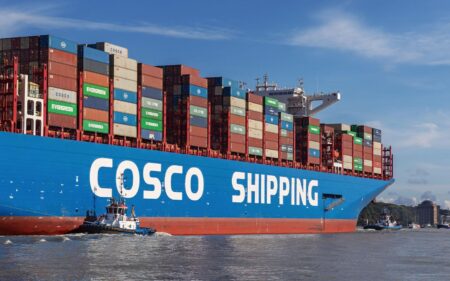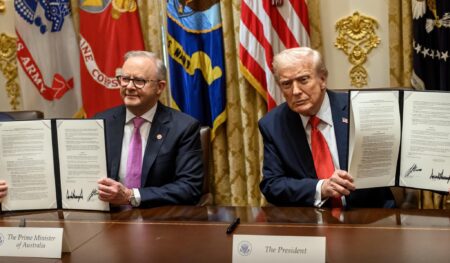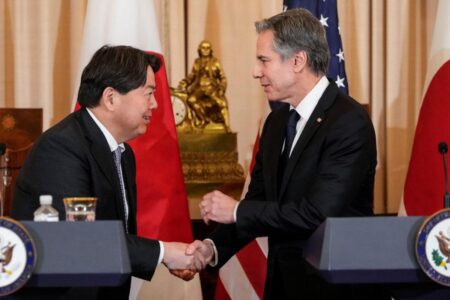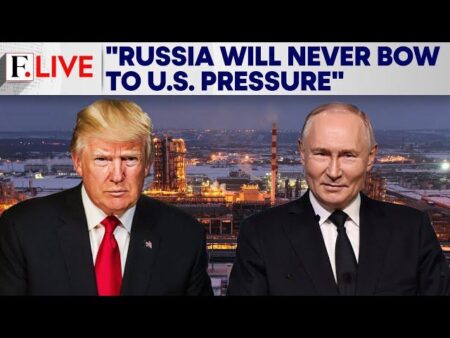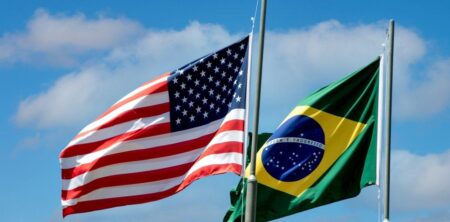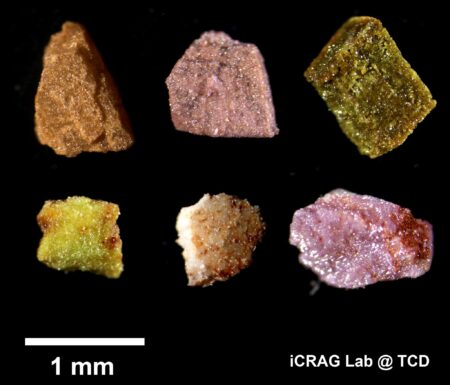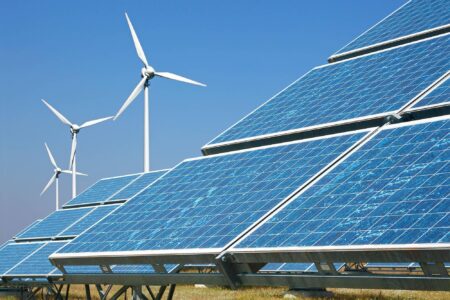Europe faces mounting pressure as the US issues a bold ultimatum on Ukraine support, igniting a wave of urgent diplomatic activity. Allies scramble to coordinate their strategies in the face of escalating geopolitical tensions, Bloomberg reports
Browsing: US
The US joins forces with Brazil, Canada, Mexico, Japan, France, Egypt, Italy, and over 90 other nations at Dubai Airshow 2025 to showcase revolutionary innovations that are reshaping the future of aviation, travel, and technology
The US is accelerating its efforts to lock in a rare earths supply deal with China, fueled by growing concerns over potential disruptions that could threaten key technology and defense industries-highlighting an escalating struggle for dominance over these essential resources
Visitors from the US, China, and Spain are fueling an extraordinary boom at Ghana’s Kakum National Park. With eco-tourism thriving and wildlife conservation gaining momentum, the country’s sustainable travel scene is soaring to thrilling new heights
The US has approved a $3.2 billion missile sale to Germany, dramatically enhancing NATO’s defense capabilities in response to rising security threats across Europe. This groundbreaking agreement underscores the deepening ties and strategic alliance between transatlantic partners
The UAE is skyrocketing alongside China, Japan, the US, Spain, Brazil, and more as a pioneer in near-space tourism. With ambitious plans to revolutionize commercial space travel, it’s ready to open exhilarating new frontiers for thrill-seekers worldwide
The US has announced an exciting plan to cut biosimilar development costs by 50% for India’s Biocon, a top executive told Reuters. This ambitious move aims to boost access to affordable biologics and strengthen the growing pharmaceutical alliance between the US and India
Indian content creator returns from the US, sharing shocking experiences of racism and threats. In a candid interview with NDTV, she reveals the challenges she faced abroad that ultimately inspired her courageous decision to come back to India
The U.S. is set to pause port fees on Chinese vessels beginning November 10, delivering a much-needed boost amid ongoing trade tensions. This smart move aims to clear shipping bottlenecks and accelerate the flow of goods through key ports, providing crucial relief to strained supply chains
The US has urged ASEAN nations to take a strong stand against China’s territorial claims in the South China Sea, emphasizing the urgent importance of defending international law and preserving peace across the region, according to AP News
The US and Australia have teamed up in a bold new partnership to secure rare earth mineral supplies, determined to reduce reliance on China and strengthen their foothold in the crucial critical minerals market
The US’s major financial backing for Argentina’s bailout marks a bold step toward stabilizing the nation’s struggling economy. Although early signs show a mixed outcome, with inflation stubbornly high, many remain uncertain if this intervention will achieve lasting success
The US has teamed up with Japan and South Korea in dynamic collaboration agreements, sparking groundbreaking advances in AI, semiconductor manufacturing, and biotech innovation. These powerful partnerships are set to accelerate progress and strengthen strategic ties in these critical technology arenas
The US is intensifying its pressure on Hungary to halt Russian oil imports, spotlighting rising tensions over energy connections amid the ongoing Ukraine conflict, Bloomberg reports. This move aims to tighten sanctions against Moscow and curb its influence
Sixteen men from Haryana were deported from the US amid a police probe into their unusual journey via a donkey route. Authorities continue investigating the bizarre travel method in this ongoing case
The US and Brazil are keen to arrange a meeting between President Joe Biden and President Luiz Inácio Lula da Silva as soon as possible, signaling a powerful drive to strengthen their diplomatic ties, Reuters reports
The US is urging its allies to fortify their rare earth supply chains, highlighting rising worries about China’s food security and the strategic threats it presents. This ambitious effort aims to reduce dependence on Beijing for these critical materials amid escalating global tensions
The U.S. is joining forces with Finland to overcome its Arctic icebreaker shortage, countering Russia and China’s expanding influence in the polar region. This collaboration aims to boost America’s strategic presence in the rapidly changing Arctic frontier
The recent policy shifts in the US and China have sent shockwaves through the global renewable energy sector, igniting concerns over a potential slowdown in clean energy investments, Al Jazeera reports
Turkey is ramping up efforts to strike a rare earths supply deal with the US, following sluggish talks with China and Russia. As global supply chain uncertainties mount, Turkey is determined to secure these critical minerals, Bloomberg reports









